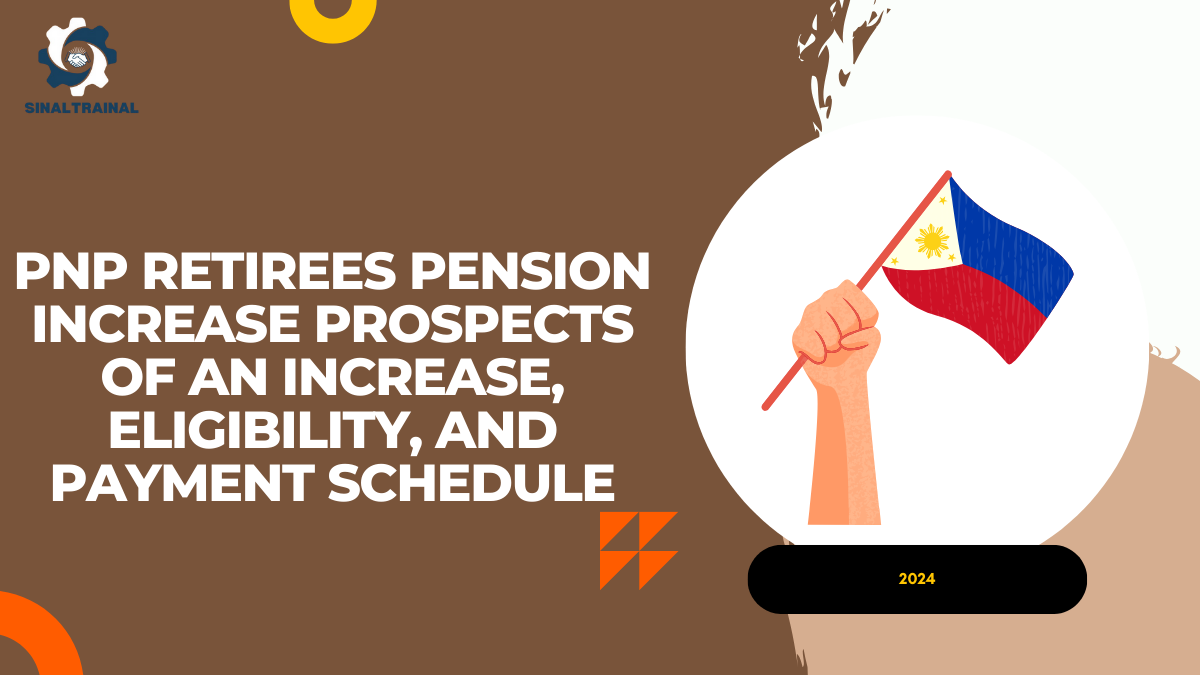In this article, we’ll explore the anticipated PNP Retirees Pension Increase for 2024, discussing key details such as the likelihood of an increase, eligibility criteria, and essential payment dates. For many retired citizens, this increase is critical, and authorities ensure that information about pension changes is shared via registered email addresses. Let’s dive into the current status of the pension increase, how retirees can apply, and the expected timeline.

Anticipated PNP Retirees Pension Increase in 2024
The Pension Increase for 2024 is highly anticipated by over 3 million retirees across the Philippines. Many of these individuals come from low-income households, relying on monthly pension payments to cover their expenses. After retirement, life brings a host of changes—reduced savings, rising medical costs, and increased dependency on others—making government financial support crucial.
Ronaldo Ledesma Macaset recently announced that P223,981.99 will be allocated for senior citizens this year. The CEO and President of the Social Security System (SSS) confirmed that pensioners could expect a raise of approximately 15%.
To receive a pension, retirees must have made consistent contributions during their working years. These contributions typically amount to around 4.13% of their salary. The expected pension payment averages PHP 20,250 per month, providing vital financial support. One significant advantage of the Philippines’ pension system is that the pension amount is non-taxable, allowing retirees to fully utilize the funds for their needs, whether it be for medical bills, groceries, or household expenses.
PNP Retirees Pension Increase Eligibility Criteria
Not every retiree qualifies for the pension increase. There are specific criteria that determine eligibility, ensuring that those who truly need the support receive it.
- Age Requirement: Retirees must be 60 years or older.
- No Source of Income: The pension is only available to those who do not have any other source of income.
- Residency: The applicant must be a permanent resident of the Philippines. However, expatriates can also benefit if they hold a Special Resident Retiree’s Visa (SRRV).
- Duration of Pension: Retirees who have been receiving pension payments for at least three consecutive years are eligible for the pension increase.
Several factors can influence the exact amount of the increase. These include the retiree’s age, assets, and total annual income. Additionally, exceptional circumstances like having dependents or requiring caregiving services are considered when determining the pension increase. Many retirees rely on family members or caretakers, adding another layer of financial strain that the government aims to alleviate through the pension increase.
PNP Retirees Pension Payment Schedule for 2024
Retirees can choose between two payment methods: paycheck or direct deposit. Below is a table showing the payment dates for each method:
| Paycheck Date | Direct Deposit Date |
|---|---|
| 27 Feb 2024 | 29 Feb 2024 |
| 27 Mar 2024 | 29 Mar 2024 |
| 26 Apr 2024 | 30 Apr 2024 |
| 29 May 2024 | 31 May 2024 |
| 26 Jun 2024 | 28 Jun 2024 |
| 27 Jul 2024 | 31 Jul 2024 |
| 28 Aug 2024 | 30 Aug 2024 |
| 28 Sep 2024 | 30 Sep 2024 |
| 29 Oct 2024 | 31 Oct 2024 |
| 27 Nov 2024 | 29 Nov 2024 |
| 30 Dec 2024 | 31 Dec 2024 |
For retirees who have not received their pension for up to three months, it’s crucial to contact the Department of Social Welfare and Development (DSWD) to resolve any potential issues. Missing documentation or errors in the pension application may be the cause of payment delays. Citizens are encouraged to check the payment status through the DSWD portal by creating a “My Account.” This online tool helps retirees track their pension and update necessary information.
How to Choose the Right Payment Method
Retirees have the option of receiving their pension through either a physical paycheck or direct deposit. Each method has its own advantages. A paycheck allows for physical handling and personal control of funds, whereas direct deposit is more convenient and ensures that the funds are transferred directly into the retiree’s bank account without any delay.
Whichever method retirees choose, they need to provide their PNR number (Pension Reference Number) to track the status of their payments.
Likelihood of a PNP Retiree Pension Increase in 2024
The decision regarding the 2024 pension increase will ultimately be made by the GSIS (Government Service Insurance System) Board of Trustees. According to recent media reports, any changes in pension amounts will be aligned with the Pension Index, which stands at 4.8%. This index reflects the growing cost of living and the financial needs of retirees who no longer have a stable income.
Many retirees have petitioned the government for an increase due to rising inflation and the increasing cost of essential goods and services. The hope is that 2024 will bring this much-needed financial relief.
In addition to pension adjustments, civil service workers can also expect a salary increase in the near future. The Department of Budget and Management has indicated that a raise of over 6% could be applied to civil service employees’ wages. Meanwhile, private sector employees are also likely to see wage adjustments in line with these changes, providing broader financial relief across different sectors of society.
Conclusion
The PNP Retirees Pension Increase for 2024 is a significant topic for millions of Filipino retirees. Many are hoping for a substantial increase to cope with rising living costs, and the government is expected to address these concerns in the coming months. Eligibility criteria ensure that only those in need will receive the pension, while the flexible payment schedule allows retirees to choose how they want to receive their funds.
As the final decision rests with the GSIS Board of Trustees, retirees and their families remain hopeful that 2024 will bring positive news. Keep an eye on official announcements, and make sure to follow up with the appropriate authorities if you face any delays or issues with pension payments.
Click here to know more.